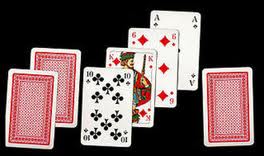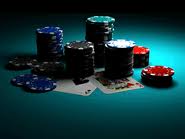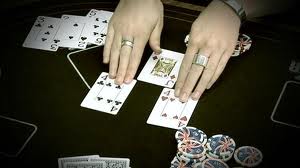Playing Weak Hands in Seven Card Stud
 Seven card stud players are always hoping for the best when it comes to what they’re dealt on third street. Unfortunately, there will be plenty of times when your starting stud cards are weak, which puts you to some very difficult decisions.
Seven card stud players are always hoping for the best when it comes to what they’re dealt on third street. Unfortunately, there will be plenty of times when your starting stud cards are weak, which puts you to some very difficult decisions.
You can’t simply fold in all of these scenarios either because – in the right situation – you can form very profitable hands by the time seven cards are dealt. So in the pursuit of knowing when playing a weak hand could be profitable long-term, let’s look at some different factors you should keep in mind.
Avoid Compounding Problems
When many players make a bad call on third street in stud games, they don’t realize that this potentially costs them more money later on too. To illustrate this problem, let’s say that you’re dealt Ts-Th-8c(door card), and an ace and king upcard have bet/called before you.
Sure your stud cards are definitely worth playing in some situations on third street; however, your pair of tens and weak kicker don’t look to play well in this scenario. Just for the sake of this example, let’s say that you call anyways and catch a 7d, while the ace gets a queen and the king gets a jack.
Since you’ve picked up a gutshot straight draw to go along with the pair of tens, you call again in hopes of catching another 10 or straight card. But even with the slight potential to improve your stud cards, this is a hand that should have been folded on third street before you wasted two more bets in chasing a marginal hand.
Only a Bring-in
Assume we take the exact same stud game situation described above – where you had Ts-Th-8c – but there is only a bring-in bet out in front with weak door cards behind you; now playing this hand could definitely make you some money. This is especially the case when your cards are live and you could get a set or two pair.
If the hand is expectantly raised behind you, the best move is normally to fold. The reason why is because A) calling will cost you more money, and B) the value of your stud cards have decreased following the raise.
A common situation in seven card involves players limping in when they’ve got a weak hand. The obvious reason why players limp in these stud game situations is because they’re hoping to catch a great card on fourth street. Of course, if you want to wisely limp in, you’ll need plenty of other limpers at the table. Furthermore, when you limp and don’t improve your hand, it’s important to fold these hands to avoid compounding mistakes.
As for a good scenario to call the bring-in on third street, assume you have Kd-Js-Th; this is definitely a nice hand to call the bring-in with because of both the high pair and gutshot straight potential. Once fourth street comes around, you’ll have plenty of factors to consider when deciding what to do next. Some of these factors include the following:
– If you catch a high pair
– Your straight potential is improved
– How much money is in the pot
– What potential hands opponents could have
– Will your desired hand be paid off at the end of seven cards?
Getting Paid Off
Expanding on the last point we just made about if your hand will be paid off at the end of seven cards, limping in can enable you to cheaply play hands, then punish other players when you connect. Going further, limping really helps when at least one or two people will pay off your hand.
For example, let’s say that you’re dealt Ad-Qh-8d in a stud game, and three people limp in front; now you can cheaply call with your two flush and top pair potential. Assuming you eventually hit the flush, it’s especially helpful if a less skilled seven stud player will continue calling your bets.
Besides looking for players who’ll pay you off in stud games, you also need to have live cards. Using the Ad-Qh-8d hand as an example, it’s especially helpful when all aces (for top pair), 2’s, kings, jacks and tens aren’t showing in opponents’ door cards. If one or two cards are seen in opponents’ upcards, it could still be correct to call a bring-in; however, the goal is to have your stud cards be as live as possible.
Big Door Card
Another situation worth covering with weak cards in stud games is when you’ve got a big door card showing. Assuming you’ve got an ace or king showing – but poor hole cards – you can always attempt a bluff. This is especially true if your stud game opponents play pretty tight and/or their door cards are weak. If you do get called and fail to land anything on fourth street, don’t be afraid to throw your cards away in these stud game situations.
Full Bet or Bring-in
The final factor that we’ll discuss in regards to weak hands in stud games involves whether you’re dealing with a full bet or bring-in. Assuming a full bet(s) is out in front, your chances of profitably playing weak hands in seven stud diminish somewhat. But when you’ve only got a bring-in to call or raise, your options open up a lot more.
On average though, you’ll be folding more weak hands than you play on third street. In fact, knowing when to fold is one of the greatest virtues of any good seven card player. But also remember all of the factors we talked about above so that you properly handle the situations where you can eventually improve weak starting cards into good hands by the end of seven cards.


